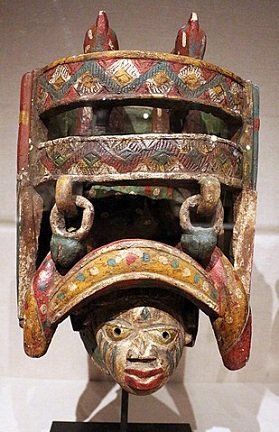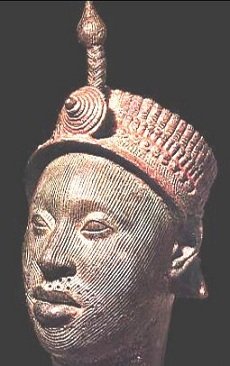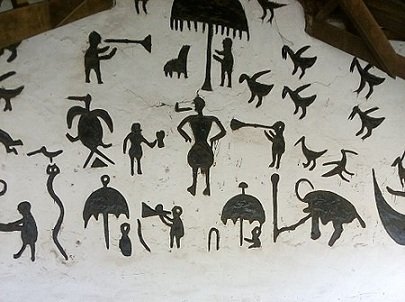ADSactly History : History Of Southern Nigeria [Part 1] - Yoruba In The Pre-colonial Era
Nigeria is home to about 250 ethnic groups with an excess of 500 indigenous languages. Among these ethnic groups, the top three strategic and politically influential ones are Igbo, Yoruba and Hausa (including Fulani). These ethnic groups or tribes are geo-politically situated in the east, South-west and Northern Nigeria respectively. In this episode, we will be looking at the Yoruba ethnic group, their origin and culture during the ancient time.

Yoruba Tribe
Yorubas are geo-politically located in the Southern part of Nigeria and predominantly found in South-western part of Nigeria. Yorubas are, by statistics, the second largest ethnic group in Nigeria with an average of 21% of the entire ethnic groups in Nigeria [ref]. The story relating to the people of Yoruba and their culture is one that particularly fascinates history scholars because of the cultural diversity of the Yoruba tribe.
Even though Yorubas are predominant in South-west Nigeria, other regions like Kwara and Kogi (North central) have Yoruba speakers. Yoruba scholars believe that Yoruba ethnic group existed long before 2000 BCE and can be found in other places across the globe apart from Nigeria. In this present time, the major religions practised by core Yoruba people are traditional, Christianity and Islamic religion, though we are not focusing on religion here. The account of the origin of Yorubas varies from scholar to scholar. Here, we will be looking at a few of them.
The version of Samuel Johnson
Samuel Johnson is a very known name in the history of Yoruba. He was a historian and an Anglican priest who lived around the late 19th century to the early 20th century. His account of the origin of Yoruba can be seen in the book published by him "History of the Yoruba". According to Samuel Johnson, the ancient Yoruba ancestors migrated from Northern Africa (the region around ancient Egyptian territory). Observably, the Yorubas share similarity with the present day Egyptians - these include; arts, religious inclination, traditional and customary practices (like burials etc).
These similarities could trace their descent from North Africa. Samuel Johnson also noted in his book that the Yorubas journeyed for many years from Egypt until they found a settlement in South-western Nigerian, Ile-Ife (Osun state) to be precise, which has been recognized as the ancestral home of the Yorubas in Nigeria.

The movement of Yoruba from Egypt to Ile-ife was said to have been led by Oduduwa, who has been recognized as the first and most influential leader of the Yoruba ethnic group. After settling down in Ile-ife, Oduduwa had seven sons and they founded other kingdoms in Yoruba land - that was how the Yoruba tribe spread in Southern Nigeria. Now let's look at another version of the origin of Yoruba.
The version of Oke Oramfe
This version is a creationist account rather than a "migration" account. People from Southern Nigeria must have heard about "Oke Oramfe". There is a popular legend in Yoruba land that states that the creation of the world started in Oke Oramfe (which is situated in Ile-Ife; the ancestral home of the Yorubas) according to this publication on Yoruba history.
This account is very funny though but "oral tradition" has remained a valid source of history. According to the proponents of the account of Oke Oramfe, it has been believed that the almighty creator sent some messengers to Ile-ife with some elements (earth, cloth, cockerel, iron) with which they were to create their own world and rule humanity. These messengers were believed to be immortal and led by Orisa Nla (also called Obatala).

During the arrival of these immortals, their leader got influenced by "worldly things" (wine, in particular) and that was how the elements (which signified authority) were captured by Oduduwa who became the new and true leader of the Yorubas. Even though some of this history have been debunked by evolutionists on the platform that humans evolved from Ape-like hominins, Yoruba creationists still hold this myth and legend as true and they have successfully passed them down from generations to generations through "oral tradition".
However, even among Yoruba history scholars, there has been contention as to which version of this history (whether the Johnson version or Oke Oramfe) holds more potency. One thing is similar to both accounts though; they both recognize Ile-ife as the ancestral home of the Yorubas and even till this present time, Ile-ife (Osun state) is still accorded that honour.
Yoruba Administration and Socio-political organization
To oversee the administration of the Yoruba land, Oyo was chosen to be the capital and seat of power in the ancient Yoruba land. Oyo was believed to be founded by one of the sons of Oduduwa; Oranmiyan. Asides creating the Oyo empire, he has been credited for creating the Benin empire. During the leadership of Oranmiyan, Oyo grew to become extremely powerful and a force to be reckoned with.
The history of structured administration in Nigeria can be traceable to Oyo and they are credited for being the first empire to have an established law that governed the people. To make Oyo even greater, an Alaafin (figure-head of the empire) was established to oversee the entire empire and his title literally translates to "Lord of lands". Even though the authority of Alaafin was almost absolute, he was answerable to an instituted council called Oyomesi (which can be called National Assembly in this present time).
Oyo empire also established a very powerful army led by Are-Ona-Kankanfo who was believed to be very brave and fierce in battle. The leader of the army had only one mandate; "win the battle or lose your life". Anytime an Are-Ona-Kankanfo lost a battle he was presented with an empty calabash that signified he should take his own life, and another warrior would be appointed as Are-Ona-Kankanfo. This made the warriors very fierce and brutal in battle and they became a major tool that made the Oyo empire to exercise dominance throughout the Yoruba land and they captured many territories.
There were other administrations founded by the Oyo empire to assist with law enforcement, like the Ogboni cult et al. All these are part of the success stories and history of Yorubas as passed down by oral tradition.
Authored by @samminator
Click on the coin to join our Discord Chat

Witness proposal is here:
Go To Steem Witness Page
In the bottom of the page type: adsactly-witness and press vote.

Use small letters and no "@" sign. Or, click here to vote directly!
Thank you!
This is a fascinating topic. As a Latino scholar who has been studying African American literature and its influence in Venezuelan literature, I find these dissertations on African culture and history of great value.
During the Harlem Renaissance there was an African American bibliophile, Arturo Alfonso Schomburg of Puerto Rican, African, and German descend who devoted his life to compiling the history and literature by and about africans as a way of fostering pride among blacks in America.
It is still an issue among scholars to validate the importance of both history and oral tradition as a way to break the stereotypical assumptions about racial and cultural superiority.
I celebrate your writing about such important matter
Thanks a lot for the nice comment. Africa has a rich cultural heritage, this is the reason I've decided to showcase it for the world to see
This new fork in your treatment of the importance of Africa, now dedicated to Nigeria, is very interesting @samminator. In particular the Yorubas are an ethnic group of great value in America. I am not a specialist in anthropology or ethnology, but it is argued that a religious manifestation with great power in American countries (Cuba, Dominican Republic, Venezuela, Brazil, etc.), known as santeria, derives from the Yoruba religion.
On the origin, I believe that the scientific explanation has value in that order (rational-scientific), and the mythical recreation also in its field (imaginary and oral recreation). I don't think they should be confronted, because their statutes are different.
Thanks for your post, @samminator. Greetings.
Thanks buddy. Yeah, the Yoruba tribe is well known throughout the world and not just in Nigeria. It feels good to research about this great tribe
What I know most about the Yoruba is their religion, which came to America with the Africans who came as slaves. In this way they not only brought religion, their culture, but also their beliefs, their gods. The masters and owners of the slaves tried to evangelize them, but did not achieve their task, on the contrary, every day non-Africans began to practice Santeria. In this way began a process of syncretism in which Catholic saints were equated with the orishas yorubas, to worship them without arousing controversy among Native Americans. In my country, specifically, the Yoruba religion has penetrated in recent years with the arrival of Chavism. It was good to know about its history and culture. Greetings, @samminator
Thanks a lot Nancy. In this present time, however, core Yorubas have tilted towards Christianity and Islamic religion, though the traditional practices are still found among Yorubas.
@adsactly nice article. Finally I got to learn something about different countries from your article. Nice work keep it up. @adityajainxds #thealliance
@adsactly, a remarkable piece of literature, absolutely brilliant with a writing style that lazy readers like myself would enjoy. It is also wonderful to see a writer who entertains his audience with African history, culture, art and awesomeness. haha.